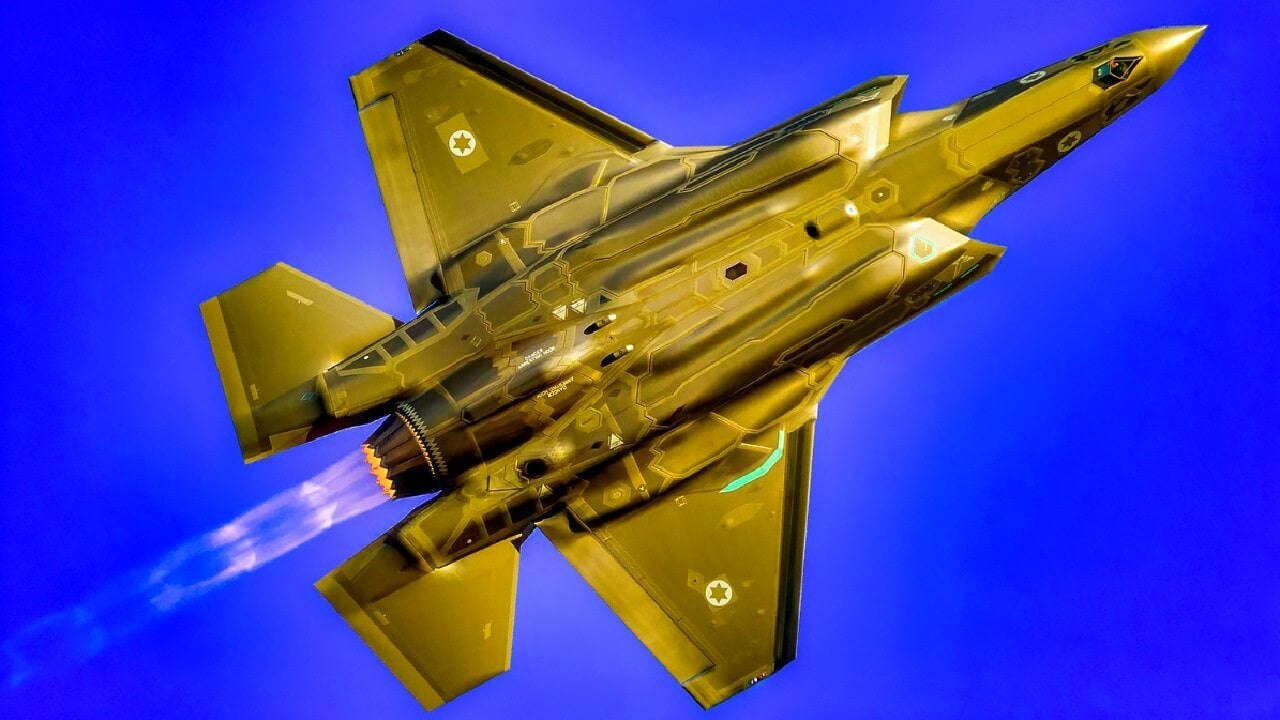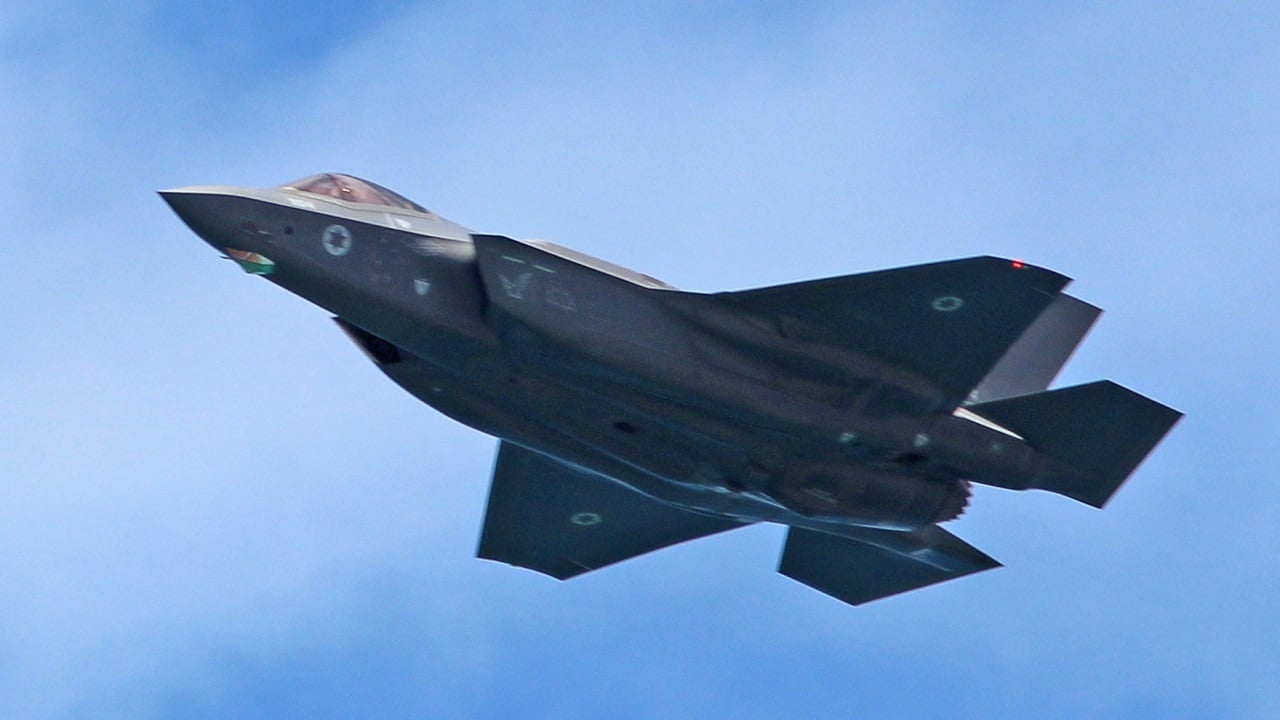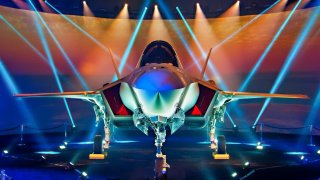Israel's Not-So-Secret Nuclear Weapons Program Has Just 1 Goal
Israel, estimated to have between 90 and 400 nuclear weapons, is one of nine nuclear powers. The country's geopolitical context, being a progressive democratic Jewish state in an autocratic Islamic region, shapes its nuclear strategy.
Summary: Israel, estimated to have between 90 and 400 nuclear weapons, is one of nine nuclear powers. The country's geopolitical context, being a progressive democratic Jewish state in an autocratic Islamic region, shapes its nuclear strategy.

-Unlike typical deterrence, Israel's strategy focuses on compellence to maintain a stable status quo for its survival.
-Developed secretly with initial French and Norwegian assistance, Israel's nuclear arsenal includes advanced delivery systems.
-Despite criticism, Israel views its nuclear capability as essential for peace and security, deterring regional threats and ensuring its existence amidst historical and ongoing hostility from neighboring countries.
Why Israel Has So Many Nuclear Weapons: Survival
It has been estimated that Israel has anywhere between 90 and 400 nuclear weapons, making Israel one of nine nuclear powers in the world. The ongoing shadow war between Iran and Israel is increasingly coming into focus, and the nuclear question hangs over this escalating conflict.
The first thing to understand is the geopolitical context in which Israel exists. A nation that is roughly the size of New Jersey, it is a predominantly progressive, democratic, Jewish state in a region that is overwhelmingly autocratic and Islamic.
When Israel was first founded in 1947, it had to fight for every square inch of territory that now comprises its country. Israel’s Arab neighbors hated the notion of a Jewish democratic state existing in the land of Muhammad. These states waged unrelenting warfare upon their Jewish neighbors. Because of this reality, Israel was forced to play the role of the scrappy underdog.
With “Never Again” as their mantra, Israel’s Jewish population would fight to the last person to prevent another Holocaust from befalling them. This is why every adult Israeli is required to serve in their nation’s armed forces. It’s why, despite being an overwhelmingly progressive society, in the wake of the Hamas October 7 terror attacks, Israel is becoming a pro-gun rights nation.

This further explains why such a small nation has such an oversized nuclear weapons arsenal, even if it maintains ambiguity about the arsenal’s existence.
Israel's goal with nuclear weapons is not deterrence as Americans understand it. How could it be, given the rough neighborhood Israel lives in?
Instead, Israel's nuclear strategy is compellence, which is the ability of one state to coerce another into action. Israel’s compellent objective is not to upend the region – it is simply to ensure a stable status quo that allows for the Jewish state to survive in relative peace.
A Secret Nuclear Bomb
Israel’s nuclear weapons arsenal was developed in utmost secrecy, kept hidden away even from its closest allies in America (much to Washington’s chagrin at the time).
The story begins in the Negev Desert in 1960, at a place called Dimona, where the Israelis, with French assistance, were building a nuclear reactor.
The Eisenhower Administration, which was in its final months in office, discovered the existence of this reactor.
As the Wilson Center writes, “The discovery caused apprehension within the Eisenhower Administration by invoking concerns about regional stability and nuclear proliferation, because it also produced annoyance about Israeli officials at all levels provided less than credible answers U.S. questions about Dimona.”
Secrecy surrounded every aspect of the Israeli project. There are even recorded incidents, as revealed by the Wilson Center, of Israeli diplomats lying to their American counterparts after U.S. State Department officials happened by the reactor at Dimona in the 1960s.
The French reportedly supplied the technical assistance, while the Norwegians supplied the heavy water that was necessary for the creation of nuclear technology.
American Complicity?
Some controversy exists. Many observers, such as Mark Gaffney, have claimed that America’s “willing complicity” in the project explains the success of Israel’s nuclear weapons program.
People like Gaffney insist that, because Israel first obtained a modest amount of nuclear material from the United States under the Eisenhower Administration’s “Atoms for Peace” program, and since so many Israeli scientists were educated at American universities, there was inherent complicity.
But these claims miss the fact that everyone, including former President Dwight D. Eisenhower, was caught unaware by the Israeli push for nukes and was opposed to that program, which is why Israel hid it from its U.S. ally.
The Israelis later partnered with another aspiring nuclear power, South Africa, and began jointly developing nuclear weapons in secret. People opposed to Israel’s nuclear weapons program see a conspiracy where none likely exists.
The Americans, as usual, got caught by surprise and only realized they’d been duped far too late in the process. By the time the Yanks recognized the deception, Israel had nukes.
After that, what could be done? The strategic benefits to a continued alliance with Israel far outstripped the annoyance of having been lied to by a country that was desperately fighting for its survival against bloodthirsty neighbors.
Israel and South Africa
The Americans could never prove that Israel was working on nukes. And Israel denied it each time they were asked. By 1978, the Americans got their proof. That was when twin flashes were detected by an American satellite passing over Prince Edward Island off the coast of South Africa.
Ultimately, the South Africans admitted they had developed a secret nuclear weapons capability, abandoned those nukes, and joined the nuclear non-proliferation treaty (NPT) in 1991.
To this day, Israel denies that it has nukes and has never joined the NPT.
But it is a terribly kept secret. Some have argued that Israel’s possession of these weapons has destabilized the Middle East and compelled Iran to acquire nuclear weapons of their own. This claim is ridiculous. As I document in my book, The Shadow War: Iran’s Quest for Supremacy, as early as 1980, just one year into the existence of the Islamic Republic of Iran, Tehran was yearning for nukes.
The Israelis sought nuclear weapons for purely self-defense reasons. As the emails of former secretary of state Colin Powell, released in 2016, revealed: “The boys in Tehran know that Israel has [200 nuclear weapons] all targeted at Tehran.”
Israel's nuclear arsenal is the ultimate failsafe for the threatened Israeli democracy.
Israel’s Nuclear Arsenal
Most experts believe that Israel possesses nukes ranging from tactical, or “non-strategic,” nuclear weapons, all the way up to neutron bombs. These are miniature thermonuclear weapons that are designed to kill people living in cities while keeping the buildings intact.
Israel has an assortment of delivery systems as well, including advanced ballistic missiles that are assessed as being able to reach as far away as Moscow. The Israeli military also reportedly has nuclear-armed mines and cruise missiles at their disposal.
By 2002, it was reported that Israel had developed a maritime nuclear ability, thus establishing a nuclear dyad of land-based and submarine-launched nukes. This would give Israel’s military the ability to launch at least four nuclear cruise missiles from their flotilla of German-built Dolphin-class submarines.
In 2010, the Sunday Times reported that Dolphin-class Israeli submarines had deployed near the Iranian coastline as a sign of deterrence against Iran’s growing ballistic missile program and expanding nuclear weapons program.
Critics of the Israeli nuclear weapons program claim that it is overkill. Possessing so many nukes in a region where no other power has these weapons is not deterrence.
To some degree, these analysts are correct. Israel is not interested in deterrence as we understand it.
Israel's Nuclear Weapons Program Has One Goal
Israel’s goal, as stated above, is compellence.
In the words of former Israeli Prime Minister Shimon Peres, acquiring nuclear weapons would “force the other side to accept Israeli political demands, which presumably include a demand that the status quo be accepted and a peace treaty signed.”
And why would the Israelis seek to see balance in the region?
Israel is a tiny country, and its majority-Muslim neighbors have attempted to annihilate it since its founding. If not for Israel’s nuclear weapons arsenal, it is likely that the small democracy would have been eradicated.
Therefore, Israel’s nuclear weapons arsenal is the key to peace in the region, not the source of instability. That Israel possesses a regional monopoly on nuclear arms – and that their arsenal is sophisticated and large – means that Israel could conceivably prevent an Iran-backed regional war against them and their American partners. For this reason alone, the world should drop its opposition to Israel's nuclear weapons arsenal and recognize the inherent value that this arsenal brings.
About the Author
Brandon J. Weichert, a National Interest national security analyst, is a former Congressional staffer and geopolitical analyst who is a contributor at The Washington Times, the Asia Times, and The-Pipeline. He is the author of Winning Space: How America Remains a Superpower, Biohacked: China’s Race to Control Life, and The Shadow War: Iran’s Quest for Supremacy. His next book, A Disaster of Our Own Making: How the West Lost Ukraine, is due October 22 from Encounter Books. Weichert can be followed via Twitter @WeTheBrandon.
All images are Creative Commons.


